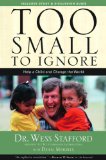
Dr. Wess Stafford writes, “…let’s consider the church, which we fondly refer to as ‘the family of God.’ It is a place meant for inclusion and nurture, we tell ourselves. Then why do the various ages scatter in opposite directions the minute we pull into the parking lot?” Wess admits the value in age-grade curriculum for targeting cognitive learning but counters with, “I just fear that the pendulum may have swung too far in that direction. Attitudes and behaviors are more powerful outcomes than mere cognitive knowledge.”
Wess points out that oftentimes in church even adults are segregated: young adults, midlife years, seniors, etc. He concludes, “The word community is more than just a gray sociological descriptor. It is a God term, designed by the Creator…”
My observation is that in times past the term community was nearly always attached to a geographic location. Nowadays, technology has removed that. Perhaps the most obvious example is transportation. For instance, I commute 15 miles to church twice a week. My automobile makes that possible. I find it sad that, by and large, I only see the people I worship with at church… at church! Same with my job. The community of people I spend time with at work I only see at work. We don’t live together, shop together, eat together, play together, or worship together.
Technology has fragmented and stratified our relationships. The Internet is another good example. How easy is it to belong to a niche cyber community? There we can share our thoughts, opinions, hopes and dreams, all with strangers we know in no other context.
Facebook has tapped into this desire for community in a unique fashion. Unlike other social networking sites, it allows users to have online connections with real-life associations (for the most part) rather than anonymous strangers.
I just checked to see what my friends are up to on Facebook:
So Facebook gives us a sense of community, but is it illusionary? I am now in touch with personal details of my friends lives, but is there not still a geographical and even relational chasm? I say relational because I learned these details of their lives by reading about them, not by hearing them communicated through a real live person.
For instance, D. didn’t verbally tell me he was engaged. I didn’t even get the pleasure of hearing about it through a mutual friend who could have excitedly shared the news with me. Nope, I found out about it through black and white print on an impersonal computer screen.
So what are some solutions to this lack of community? Recognition of the problem is a good start. Then, perhaps we can make conscious steps to overlap our relationships wherever possible. Could we attend a neighborhood church rather than commute 20 minutes? How about at work, is there a coworker who lives in our same neighborhood? If so, could we invite him over for dinner? Are there ways we could be spending time with church friends outside of church?